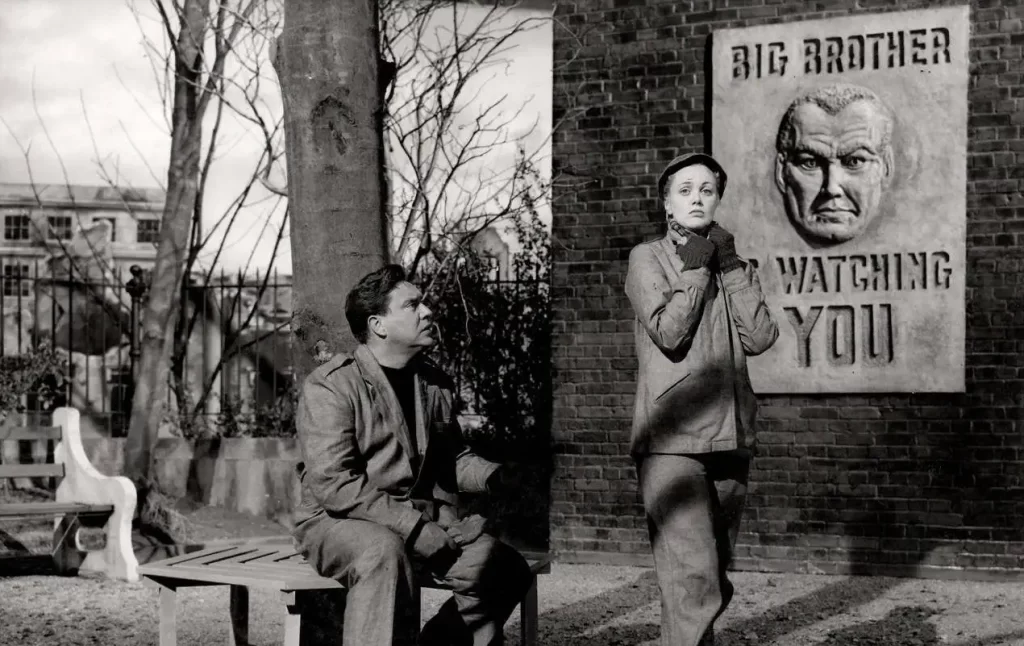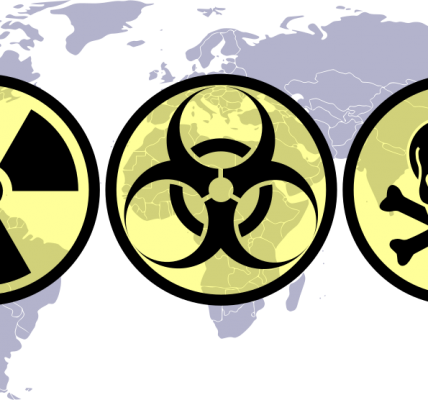In George Orwell’s classic dystopian novel “1984,” we see a frightening portrayal of what happens when there is no freedom, nor any space for the individual to make his or her way in society. The story takes place in a superstate residing on planet Earth, called Oceania led by the Party under the cult of personality Big Brother. The Party rules absolutely over all aspects of life, monitoring the thoughts and actions of its citizens through surveillance connected to print propaganda by way a few redefinitions in language.
The world Orwell paints is at once nightmarish and horribly believable. The story follows Winston Smith, protagonist and a government employee who is secretly against the Party’s totalitarian rule. He day-dreams about rebellion, freedom to think and express without restrictions. Yet the Party’s supreme surveillance and Big Brother’s watchful eye keep any thought of dissent or individualism a high crime.
Orwell deftly integrates a greater strategy that examines the risks of totalitarianism, discount particular liberties and ways by which language can be utilised to tame or warp truth. The world of “1984” is a harsh and unforgiving one, where the individual is completely absorbed by the collective under an ever-shifting interpretation of truth to suit those that control it. It serves as a grim portent, an invocation of Orwell’s dystopian prophecy; if it does not serve for free-speech-wagon-circling in this fractious time and do its cautionary duty to remind us that power without restraint comes at great cost, then what will?
Key Themes in “1984”
The vein of power and its capability to corrupt the human soul is at far more terrifying depths with in 1984. Councilman Hanton says that the portrayal of the Party in Orwell as ruling Alpha and Beta citizens alike – no one is exempt from Big Brother’s scrutiny — reflects an extremist perspective on totalitarianism: “There was a potential warning there for overreaching, heavy-handed government out control. This book could become relevant if we allow certain things to happen uncorrected.” After all, the overarching theme of a single person versus the oppressive power structure still manages to interest readers around much time and across lands.
The tampering of language and information is another central theme in “1984”. Most notable is “Newspeak,” a restricted, minimalist language designed to limit the range of thought and introductory expression. The Party controls the means of expression, and in doing so limits our ability to experience the world. This idea that if you can control language, and hold power over it is how the Party manipulates reality back to itself through its speech, this The shining example of a lot practicing indifference looping forth in family lore; running beneath stories passed between parent → child from perverted history or what they knew as fact at home in the physical world.
Also key themes to “1984” is the erosion of personal life and how omnipotent government monitoring becomes. With 1984, Orwell has described a portrait of the totalitarian state with an unwanted listening field in which everybody in some ways is seen and monitored because thought crimes punish death, serves short before today as frightening announcement to concerns about privacy increasing even more medial. It is concerned with the trade-offs between single freedom and shared security, a set of questions that continue to resonate as long current controversies over privacy versus national zero in personal freedoms.

The Relevance of “1984” in Today’s Society
Notably, since the publication of “1984”, as technology and communication have become more integrated into global culture the same pose a larger danger than ever. Orwell’s story, that of a nightmarish future where the government has total power and autonomy as an individual is lost in such perverse reality, resonated with the world-to-come for good reason.
One of the most obvious comparisons between 1984 and today is surveillance by an increasingly oppressive government, with personal privacy receding. The Party’s use of the Panoptic architecture — telescreens, collective surveillance by informers and monitoring systems such as Big Brother is a spine-chilling foreshadow to what will become increasingly common later on in the Information Age. The revelations of mass surveillance programs, such as those disclosed by whistleblower Ed Snowden have only amplified Orwell’s warnings about the necessity for strong safeguards to protect personal privacy and civil liberties.
The control of information and the distortion between fact and fiction, which, another key theme in 1984 as well has only many trend arose to life for our fake news age online. In effect, Orwell’s description of the power to change history enables a fascinating parallel with 21st-century “alternative facts” (much in development even in his days) and its impending capability for weaponizing information towards polemical or ideological ends. The novel’s exploration of the ability for language to mold and bend reality becomes a timely reminder that truth is increasingly under threat in an age where, as Ward puts it, «we lie so much about stuff everyday.
Surveillance and Government Control in “1984”
At the heart of “1984” is the Party’s relentless pursuit of power and control over its citizens. Orwell’s depiction of the surveillance state is one of the most chilling and enduring aspects of the novel, with the ever-present threat of the telescreen and the network of informants serving as a constant reminder of the Party’s omniscience and the complete lack of privacy for its subjects.
The telescreen, a two-way television that is installed in every home and workplace, is the Party’s primary tool for monitoring the thoughts and actions of its citizens. These devices are constantly active, broadcasting propaganda and instructions from the Party, while also serving as a means of surveillance, with the citizens never knowing when they are being watched or listened to. The fear of the telescreen, and the knowledge that any deviation from the Party’s orthodoxy can be detected and punished, is a powerful mechanism of control, forcing the citizens of Oceania to internalize the Party’s values and conform to its rigid dictates.
In addition to the pervasive surveillance of the telescreen, the Party also employs a vast network of informants, known as the Thought Police, to monitor and report any signs of dissent or independent thought. This creates an atmosphere of constant suspicion and paranoia, where citizens are never sure who they can trust and where even the most innocuous actions or statements can be interpreted as acts of subversion. The Thought Police’s ability to infiltrate every aspect of society, from the workplace to the home, serves as a chilling reminder of the Party’s totalitarian control and the complete lack of privacy or autonomy for the individual.
Propaganda and Manipulation in “1984”
Orwell also investigates the function of propaganda and censorship in enforcing submission to the regime, not only through invasive surveillance by The Party but words that halt incitement. At the core of this approach is The Party’s manipulation and use of language, through its introduction “Newspeak”, which aims to dramatically reduce the capacity for thought by streamlining communication.
Similarly, I found the Party’s control of information and media spreading to be something deep in it totalitarian mentality. In the Orwellian world of 1984, The Party controls all forms of media in every conceivable new format both digitally and traditionally from newspapers to broadcasts beamed out via radio or television. It does so to let the Party shape stories, rewrite history and promote an alternate version of reality more aligned with its ideological aims. Each piece of propaganda, from the red-white-and-blue banners to these wholly fictitious statistics and figures — all built to indoctrinate Oceania’s citizens, further entwining them with the Party.
This particular kind of Orwellian philosophy is significant now, considering the digital age to serve easily manipulated information and “fake news. The novel’s warnings about the dangers of a society that is constantly re-writing its own history have seemed increasingly prescient, as we struggle to steer through an information environment where truth and fact are more-or-less devalued in favour of political expediency.
Freedom of Thought and Expression in “1984”
At the heart of “1984” is a profound exploration of the human need for freedom, both in terms of individual expression and the ability to think and question without fear of retribution. Orwell’s depiction of the Party’s relentless efforts to suppress and control the minds of its citizens is a powerful commentary on the essential role that freedom of thought and expression play in the human experience.
The novel’s protagonist, Winston Smith, is a complex and compelling character who embodies this struggle for individual autonomy. Despite the overwhelming power of the Party and the constant threat of surveillance and punishment, Winston harbors a deep-seated desire for freedom and the ability to think and express himself without constraint. His secret journal, in which he records his subversive thoughts and observations, becomes a symbol of his defiance and his refusal to submit completely to the Party’s control.
Orwell’s exploration of the erosion of freedom of thought and expression in “1984” is particularly poignant in light of the novel’s enduring relevance. In an era where the power of governments and corporations to shape and manipulate the flow of information is greater than ever, the novel’s warnings about the dangers of a society that stifles independent thought and expression have taken on an even greater urgency. The novel’s themes resonate deeply with contemporary debates surrounding the balance between security and civil liberties, and the importance of safeguarding the fundamental freedoms that are essential to a healthy and vibrant democracy.

The Impact and Legacy of “1984” on Literature and Popular Culture
It was first published in 1949 and has been one of the most influential classics; its portrayal for years after publication resonated with a lot, shaping literature, popular culture, political talk etc. The title itself “1984” is still used to describe authoritarian societies even till date. Orwell’s dystopian vision has provided one of many literary touchstones in discussions and critiques of totalitarianism, surveillance, state secrecy,and the erosion of individual freedom; Ronald Reagan, for example saying bandied by left version then to be used here — which have been invoked or otherwise alluded to even up through his respective terms in office (and beyond); such influence fallen may be seen more explicitly too worked about any divergences with its themes and imagery.
The influence of ‘1984’ in literature has been widespread, inspiring a wide tradition of dystopian and speculative fiction with writers from Ray Bradbury to Aldous Huxley- as well as Margaret Atwood tapping into the same themes of power, control and what it means to be human under totalitarianism. The novel lives on, as well, in the works of authors who have faced down our new and terrifying digital realities: Dave Eggers’ The Circle; Cory Doctorow’s Little Brother — both essentially telling Orwellian dystopian stories for a networked age fueled by social media.
Outside the realm of literature, goltogel login has seeped into popular culture to such an extent that its images and characters are a part of our collective memory. For one thing, the words themselves — terms like “Big Brother,” which has become a catchall for descriptions of government surveillance; or the notion that news and language can be manipulated to serve political ends. And that legacy can be palpably felt across TV genres, whether in the satire of high or low culture — from political cartoons and satirical news shows to top-drawer series like The Handmaid’s Tale and Black Mirror with their visions of social control gone terribly awry.
Criticisms and Controversies Surrounding “1984”
While “1984” is widely regarded as a literary masterpiece and a seminal work of dystopian fiction, the novel has not been without its critics and controversies over the years. Some have argued that Orwell’s vision of a totalitarian state is too extreme or exaggerated, and that the novel’s portrayal of government control and surveillance is more reflective of the authoritarian regimes of the past than the realities of modern democratic societies.
Others have criticized the novel’s portrayal of gender and sexuality, noting that the role of women in Oceania is often relegated to traditional domestic and reproductive functions, and that the novel’s exploration of sexuality is limited and somewhat repressive. Some have also argued that the novel’s depiction of the Party’s control over language and thought is too simplistic, and that the real-world complexities of linguistic and cognitive control are more nuanced and multifaceted.
Despite these criticisms, “1984” remains a powerful and enduring work of fiction that continues to resonate with readers and thinkers across generations. The novel’s ability to capture the essential human struggle for freedom and individuality in the face of overwhelming power and control has ensured its enduring relevance and significance, even as the specific political and technological contexts of the modern world have shifted and evolved. Ultimately, the novel’s lasting impact and the continued relevance of its themes are a testament to Orwell’s remarkable foresight and the timeless nature of his warnings about the dangers of totalitarianism and the erosion of civil liberties.
The Enduring Significance of “1984”
As we look back on the legacy of “1984” and its continued relevance in the modern world, it is clear that Orwell’s dystopian vision has lost none of its power and urgency. The novel’s warnings about the dangers of totalitarianism, the erosion of personal privacy, and the manipulation of information and language have only grown more prescient with the passage of time, as the realities of the digital age have brought many of Orwell’s predictions into sharp focus.
In a world where the line between truth and falsehood has become increasingly blurred, where governments and corporations wield ever-greater power to shape the flow of information and the perceptions of their citizens, the lessons of “1984” have never been more crucial. Orwell’s masterpiece serves as a powerful reminder of the fragility of our freedoms and the importance of vigilance in the face of encroaching authoritarianism and the erosion of individual liberties.
As we navigate the complex and often unsettling realities of the modern world, “1984” remains a touchstone for those who seek to understand the forces that threaten our fundamental rights and the importance of safeguarding the principles of democracy, free expression, and critical thinking. Orwell’s novel may have been written over 70 years ago, but its timeless themes and enduring relevance ensure that it will continue to captivate and challenge readers for generations to come. In a world that often seems to be moving closer to the dystopian vision of “1984,” the novel’s message of the indomitable human spirit and the power of resistance in the face of oppression remains a powerful and inspiring call to action.
Also read: Cairo: Journey Through History and Wonder in Egypt’s Desert Capital











